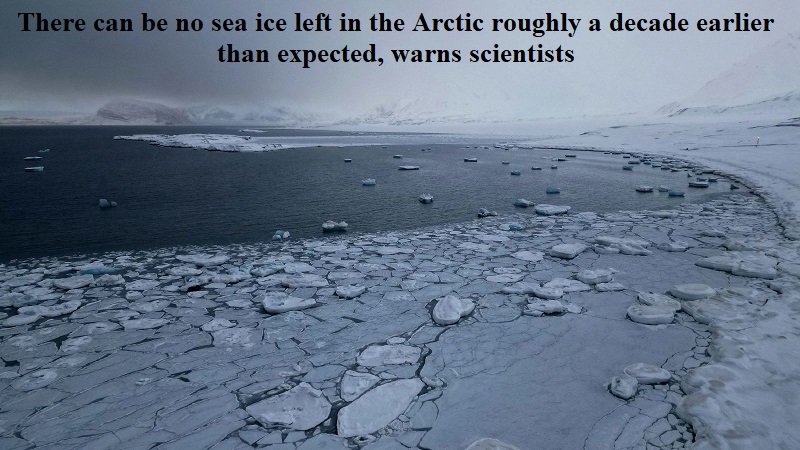
Scientists have issued a warning that the Arctic could be devoid of sea ice nearly a decade earlier than anticipated, indicating that the climate crisis is progressing at a faster pace than expected due to ongoing pollution-induced global warming.
A new study published in the journal Nature Communications reveals that Arctic sea ice is likely to completely vanish in September during the 2030s. Even if greenhouse gas emissions are significantly reduced, the study suggests that sea ice may still disappear in the Arctic during summer by the 2050s.
To assess the changes in Arctic sea ice, the researchers analyzed satellite data and climate models spanning from 1979 to 2019. They discovered that the decline in sea ice was primarily driven by human-caused pollution that contributes to global warming, and the previous models had underestimated the rate of Arctic sea ice melting.
Lead author of the study, Seung-Ki Min, a professor at Pohang University of Science and Technology in South Korea, expressed surprise at the finding that the ice-free Arctic would occur in summer irrespective of emission reduction efforts.
Arctic sea ice undergoes a cycle of buildup during winter and melting during the summer months, with September typically marking its lowest extent before the cycle restarts.
Once Arctic summers become ice-free, the replenishment of sea ice during colder seasons will be significantly slower, Min explained.
Under a scenario of continued fossil fuel consumption and rising greenhouse gas emissions, known as the “higher emissions pathway,” the study predicts a complete loss of sea ice in the Arctic from August to October before the 2080s.
These findings contrast with the 2021 report by the UN Intergovernmental Panel on Climate Change, which projected the Arctic to be “practically ice-free near mid-century” under different greenhouse gas emissions scenarios.
Min emphasized that the new study indicates the potential for an ice-free Arctic occurring 10 years earlier than previously expected, regardless of the emission scenarios.
Mika Rantanen, a researcher from the Finnish Meteorological Institute who was not involved in the study, praised the methodology used in the research for its precision in predicting the timing of an ice-free Arctic. Rantanen highlighted that the most significant result is the projection of an earlier ice-free Arctic, by approximately a decade, than previously thought, attributing the ice loss to greenhouse gas increases, which were already well-known.

Post Your Comments